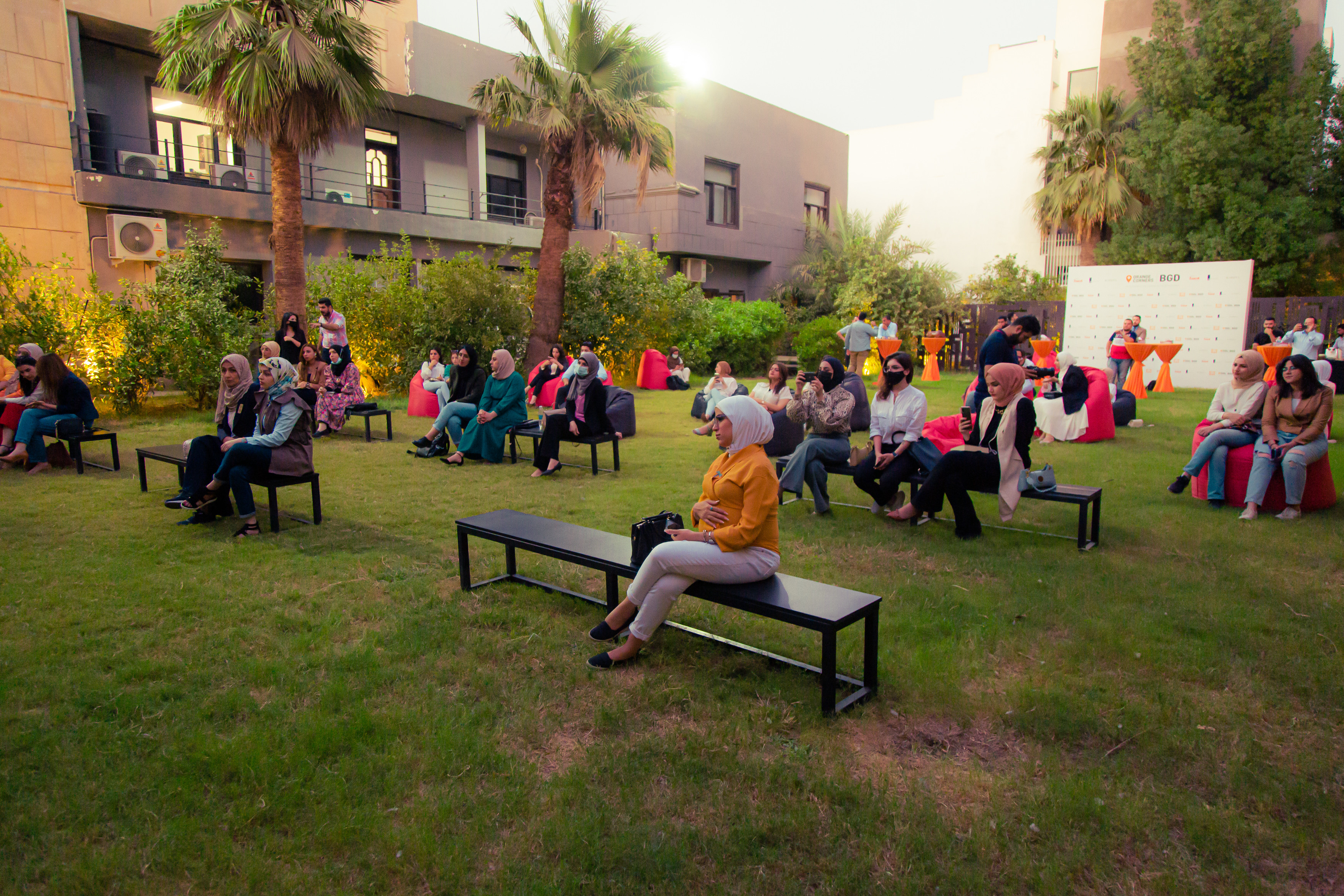Iraqi women have been and will always be very determined and hardworking people. And in the light of shedding the focus on their business journey in Iraq and the challenges they’ve been facing in the last years, the incubation program Orange Corners Baghdad holds an annual event on various topics to highlight Iraqi women in the field of business, the most important startups and the role of international institutions in supporting and empowering women.
The event took place in KAPITA’s headquarters at Baghdad, Al-Mansour. Where we hosted two panel discussions of Iraqi women entrepreneurs in various fields of expertise.
The first panel hosted two graduated female-owned startups from Orange Corners Baghdad:
Marwa Raed - Founder of Green Gold
Dhuha Jaafar - Founder of The Korean Beauty House
After welcoming them back to KAPITA, we were eager to chat with them about their recent updates and their journey during the program.
Marwa answered the following question “What were the main challenges you faced as a startup in the beginning?”: “Overcoming social boundaries was the first and most challenging part. Iraqi females have to face men from their families like the father, the brother or the husband and convince them of their ideas and their dreams. Once they have their support, it becomes easier to face the rest of society.”
Marwa Further explains: “women find it hard to participate in training programs or courses because these programs are usually far away from home or at inappropriate times. Recently some programs and organizations have been intentionally switching their work to online communication which has helped solve this issue tremendously.”
Dhuha then added “the lack of resources caused a big issue at the start. Like lack of financial support or data to do market research or general business knowledge.”
The second panel included:
Safa Fadhel, Head of Exploration at the UNDP
Ranya Bakr, Advisor for Entrepreneurial and Economic Empowerment at GIZ Iraq
Maryam Allamy, Startup Entrepreneurship Advisor for the ICT project at GIZ
Shumoos Ghanim, Vocational Guidance and Counseling Manager At World University service of Canada WUSC
This round we focused more on knowing the role of organizations in supporting female entrepreneurs and their projects through training, development and rehabilitation programs
The panel was asked: “Who are the stakeholders that would provide solutions to the women entrepreneurs’ challenges?”
Safa answered:”local communities can highlight the actual challenges and issues for women in the business sector and the collaboration with big organizations is needed to map out the best solutions”
Ranya then added: “ I think the stakeholders who provide solutions should be from all the sectors, not just one because it's a big issue. Stakeholders are from the private sector, public sector and most importantly, the academic sector as it holds a big role in changing the mindset of the society when it comes to female entrepreneurship.”
In conclusion, here are the main challenges women entrepreneurs face in the private sector:
Socially, due to their families like the father or the husband. This causes them to have limited freedom to go outside of the house and participate in training programs.
Limited freedom to stay out late.
Difficulty in networking and having private meetings with professionals and investors due to the social norms.
Lack of personal skills and not having enough time or motivation to grow them and the lack of knowledge in what necessary skills they need to grow their business.
The lack of technical and financial resources.
Lack of advanced education.
Usually, women in smaller cities have very limited access to these programs due to the far distance.
Lack of online data to help them with their businesses.
About Orange Corners Baghdad:
Orange Corner’s Baghdad is an initiative of the Dutch Embassy in Baghdad. The economic priorities of the Netherlands in Iraq are agriculture, water and entrepreneurship. KAPITA supports the community of young entrepreneurs in Baghdad by building youth capacity, and developing successful businesses. We incubate 20 startups for six months: starting with providing a co-working space, training and developing their business, events and masterclasses, a positive environment and an opportunity for investment.
